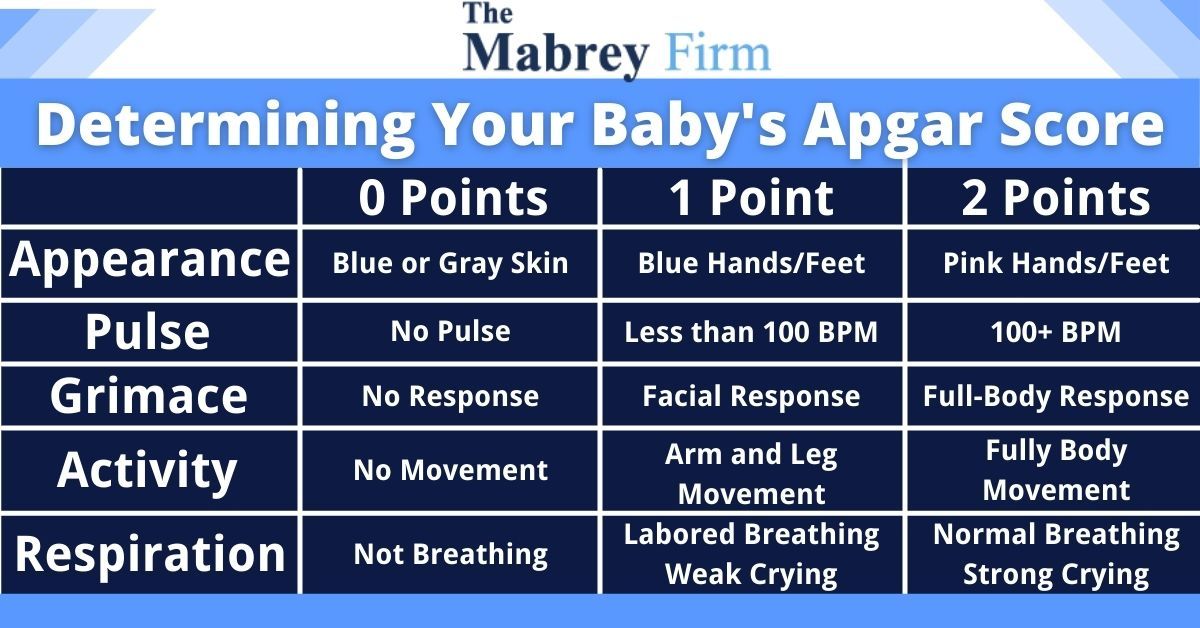How your baby acts and moves when they’re first born says a lot about their overall health. These first minutes after birth are so crucial that doctors have devised a test called Apgar to assess a baby’s wellbeing. But how is Apgar determined, and what does it say about your baby’s health? Let’s find out.
What Is an Apgar Score?
Apgar is an acronym for “Appearance, Pulse, Grimace, Activity, and Respiration.” As soon as your baby takes its first breath, medical staff set a 1-minute timer and a 5-minute timer.
During this time, they will examine the baby’s physical color, take their pulse, pinch them to determine responsiveness, check muscle tone, and determine how the baby is breathing. When time’s up, the nurses document their findings and assign point values based on a simple grid. The higher the baby’s score, the healthier they are.
This test is especially important for premature babies and those born via c-section as they tend to have a lower heart rate and breathing difficulties (transient tachypnea) when compared to infants born through vaginal delivery.
Determining Your Baby’s Apgar Score
Apgar is determined with the chart below. There are five criteria, each worth between 0-2 points. In total, your baby could score between 0-10.

While looking at this chart, recognize that a perfect “10” score is rare. An Apgar of 8-9 is average. A score of 5-7 could mean that your baby isn’t getting enough oxygen and may have experienced some degree of birth hypoxia. A score below 5 is worrisome and usually occurs in cases of emergency birth complications or when the baby has problems with their heart and lungs.
If your infant’s birth was complicated or you believe they may have been cut off from oxygen, keep a close watch on how they develop in the coming weeks and watch for signs of a latent birth injury in the coming years. While the Apgar cannot predict the likelihood of future cognitive disorders, it can present clues to help doctors and parents understand when the baby is at risk.
To schedule a free case consultation with an experienced Atlanta birth injury attorney from The Mabrey Firm, don’t hesitate to give us a call at (404) 814-5098 or send us an email.





.jpg)